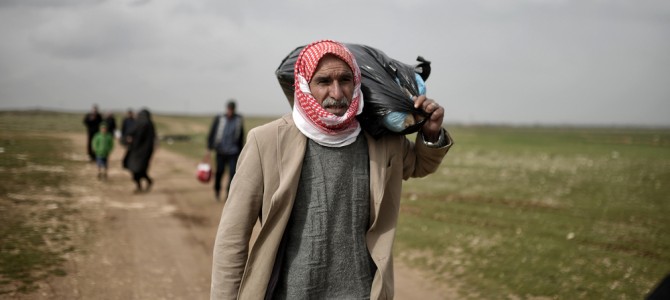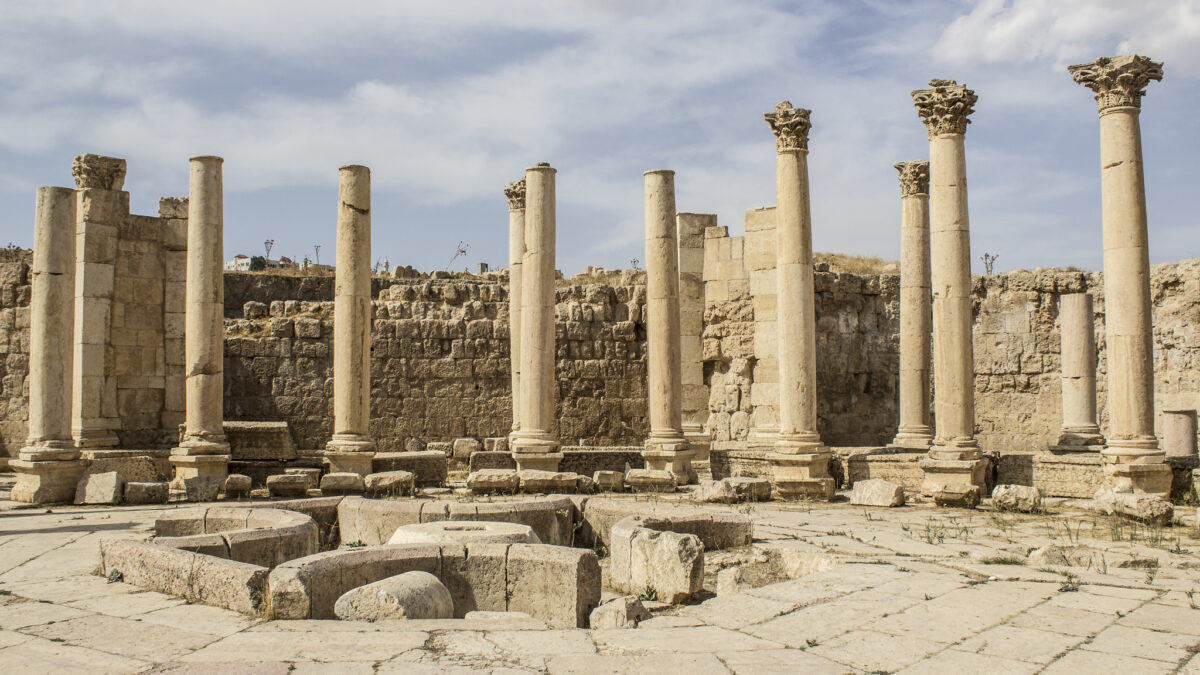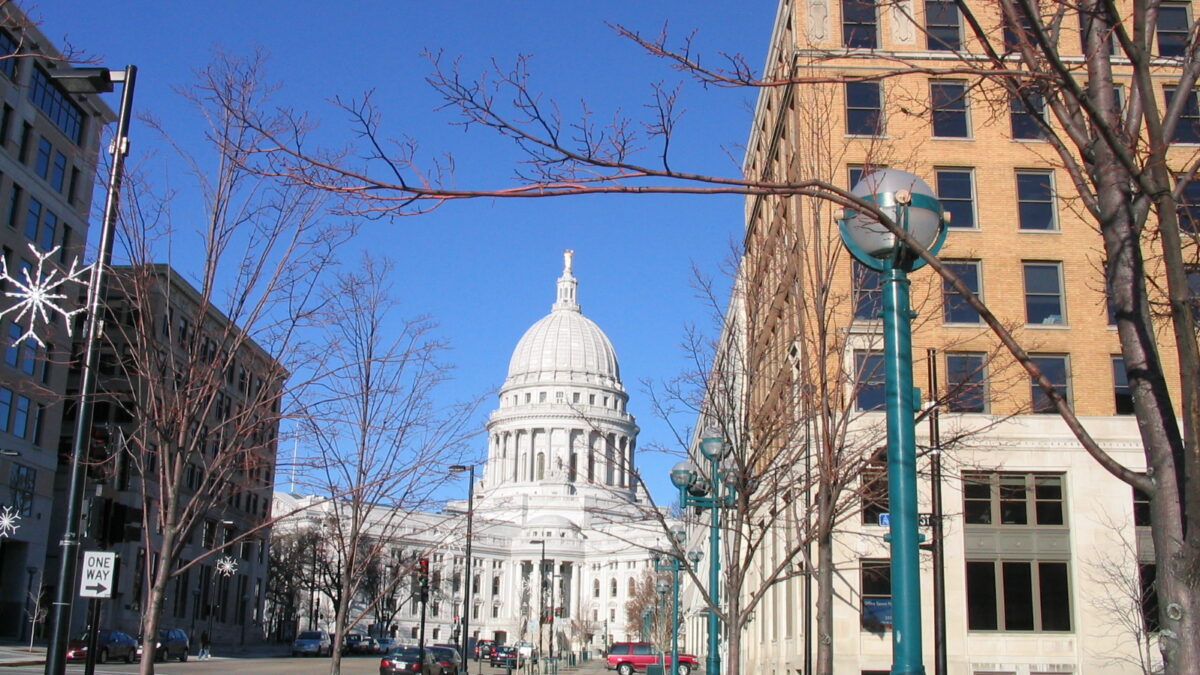
I was neither born nor bred in this country. I don’t have Ivy League credentials. Unlike elitists and pundits informed as much by cocktail parties as they are by polls and studies, I’m informed by blood, kin, and culture.
I was born in Baghdad to Christian parents who emigrated the old-fashioned way—legally—and for an old-fashioned reason: The treatment of Christians, like my family, by Muslims in the surrounding culture.
I cry at the “Star Spangled Banner,” and I cry when my naturalized home wages war against my birth home. I am an American. I am also Iraqi, and a Moslawii down to my dialect and my cooking. Such is the existential reality of first-generation immigrants: The “both/and” tension of two civilizations within one self, the wistful desire for one identity, one culture, one homeland, one whole and integral worldview. I hope, at the seasoned age of 46, I have wisdom to share with you, my beloved Americans.
This would be a good time to stop talking about immigrants as if we are children. That’s my first suggestion. American politicians, professors, and pundits who have never lived under a dictator in their life, were raised within a Western heritage and education system, and learned foreign policy and political philosophy ideas in the West pontificate about what is best in the Middle East and for middle easterners.
Fine, listen to your experts if you must, but maybe this is the time to include us in the conversation. We have opinions and knowledge. These are our countries, whose names you mispronounce, whose culture you disregard, whose history you remake, and whose future you would fashion in your image and likeness.
Bad Foreign Policy Has Caused the Refugee Crisis
I had not been in America for a complete year the day Jeanne Kirkpatrick’s “Dictators & Double Standards” was published, on November 1, 1979. Thirty-six years later, on the eve of the Paris jihadist attacks, I would read the essay that made history and shaped Ronald Reagan’s foreign policy.
Immigration and foreign policy form a double helix. There is no such thing as an immigration policy without a commensurate foreign dimension, and no foreign policy without an attendant and robust immigration dimension. They are objectively tethered, and woe to the man or woman who does not account for this.
A foreign policy that does not count the cost of emigrants and refugees is short-sighted, and devastating in the long run. This is my second suggestion: Count the immigration cost when advancing foreign policy ideas.
Kirkpatrick understood the effect on refugees when she wrote that, as bad as traditional autocrats are, they tend to observe the traditions and taboos of their culture. As difficult as life may be for their people, and though some like my own family in the ’70s are able to get out, these “neighborhood bullies” (as Benjamin Netanyahu called them at the recent dinner) do not create large number of refugees. (The majority of Middle Eastern Christians in America can attest to this.)
Such autocrats stand in contrast to totalitarian regimes like ISIS, a distinction which Netanyahu drew by stating that: “Their goal is not merely the conquest of the Middle East, it’s the conquest of the world. It’s unbelievable people don’t believe that. They don’t believe that it’s possible to have this quest for an imamate or a caliphate in the twenty-first century, but that is exactly what is guiding them.”
This latter type of regime, Kirkpatrick states, is precisely the type which creates “refugees by the million because they claim jurisdiction over the whole life of the society and make demands for change that so violate internalized values and habits that inhabitants flee by the tens of thousands in the remarkable expectation that their attitudes, values, and goals will ‘fit’ better in a foreign country than in their native land.”
The threshold has been crossed. We now have “refugees by the million.” Whether one should parse if some are “migrant” rather than “refugee” at this late hour is like one who wants to gather the one cup of fresh water that’s just been poured into the salty sea. The consequences of failed, weak, greedy, or shortsighted foreign-policy decisions are legion; this is the hour to learn from mistakes and move forward.
Immigration hurts the émigré (whether they recognize it or not) just as it impacts local communities—those they left behind and those they enter into. Being an immigrant is a mixed bag, blessing and curses, comfort and affliction. But what can humanity do? Life itself is a mixed bag, with blessings and curses, comfort and affliction. As Peggy Noonan timelessly wrote, “Everybody’s Been Shot.”
Mass immigration may be a necessary feature in our world, but it shouldn’t be the norm. In some instances it may even be a good, but we should desire more stability for the peoples of the earth. If we take the given that “everybody’s been shot,” how can we make good out of the evil we’ve all brought to ourselves and each other? How do we do this particularly in regard to immigration and foreign policy? Even if everyone in Washington were to read this essay today, I would still not expect anyone to wake up tomorrow morning with a desire to do good to one’s neighbor. But I can and do hope that some mind will be enlightened, hearts changed, and stiff necks softened.
Change How We View Nationality
We can begin the road to healing—which encompasses a better understanding of immigration and immigrants—by changing how we view nationality. Nationality is a good. Iraqis want a country of their own where they can have their own language, traditions, and way of life. So do the Syrians I know. Americans should want the same for themselves.
America is a nation, too. It has a culture, and it had at one point a national identity. You should want to care for your own country, you should desire to know and uphold your identity. You should love your country, your traditions, your holidays, your shared common life. You should want to uphold your laws and protect your borders.
Peter Singer claims, “National sovereignty has no intrinsic moral weight.” His is a philosophy confused about human nature, about who man is and what helps him thrive and feel secure. Part of the identity crisis going on in the world has to do with a diminished idea of nationalism. We have all forgotten who we are.
Ethics and Public Policy Center scholar George Weigel has written that over and again during Pope John Paul II’s nine-day visit to Poland, with the communist regime tracking his every move, “in some 40 sermons, addresses, lectures, and impromptu remarks, the Pope told his fellow-countrymen, in so many words: ‘You are not who they say you are. Let me remind you who you are.’” Weigel goes on:
By restoring to the Polish people their authentic history and culture—by giving back to his people their identity— John Paul created a revolution of conscience that, fourteen months later, produced the nonviolent Solidarity resistance movement…And by restoring to his people a form of freedom and a fearlessness that communism could not reach, John Paul II set in motion the human dynamics that eventually led, over a decade, to what we know as the Revolution of 1989.
Why is this snippet of history so crucial for me to recount? Because you, my fellow beloved Americans, have forgotten who you are. Your amnesia may not be due to communist propaganda and rule, yet you have succumbed to the postmodern and sexual revolutions, which have subverted your (our) culture and identity. This cultural and intellectual regime has foisted counterfeit identities, erasing our history and eradicating our culture by a slow dissemination of an alternate narrative. It is a progressive propaganda machine whose goal is to silence its enemies.
My fellow beloved Americans, my third suggestion to you on immigration and foreign policy is: Rebuild your national identity. If I, a stranger to your land, can love and cherish your heritage, ought you not be zealous for the land of your birth, warts and all? You sing “the land of the free and the home of the brave.” To what end?
Why Refugees Won’t Assimilate Well
Assimilation is difficult and develops slowly—if at all anymore. In the present day, there are two problems with it: As American culture has become more decadent and sexually licentious, the threshold for assimilation has become steep. Immigrants from cultures like the Middle East that hold to (among other traditions) traditional sexual mores (whether Muslim or Christian) become clannish and isolate themselves from the surrounding American culture to protect themselves and their children. The culture eventually corrupts their children, and the family degenerates.
That is one issue. The other is that immigrants of today are unlike the immigrants of yesteryear. Although it is true that some still come for better education and free enterprise, most come out of necessity—they come because they don’t want to die in war. This type of refugee situation, which has been going on since the Iraqi diaspora after Saddam was toppled and recently flared up again with the Syrian refugee crisis, brings people who see America as better than death.
Hence, they will take whatever America wants to give but will keep themselves isolated. They have no interest in assimilating. Some Muslims have even taken to building their own homeschooling cooperatives rather than sending their children to American public schools. How much American history do you think they will learn, and with what bias?
Being accustomed to socialist countries, modern immigrants (refugee or otherwise) carry with them a predisposition for government as caretaker. I’ve discussed this before when I explained why these immigrants vote for liberal Democrats even though they are socially conservative.
Most Iraqis and Syrians I know say they would go back to their countries if there were a stable government. I suppose that’s good incentives for some Americans—there’s a way to unload some people. Self-deportation, anyone? I would venture to say that even Hispanic immigrants (legal and illegal) coming from Mexico and Latin America, to a certain extent, may feel the same way.
Many of these people love their culture, language and way of life; it is poverty, government unrest, or violence that have forced them out. I would love to see a study about how many immigrants would go back to the country of their birth, and under which conditions.
Anyone working on immigration “reform” should take into consideration what I am saying about assimilation. They should further examine how much money this country is spending on legal and illegal immigration, and instead put that money into helping these other countries stabilize and on the road to flourishing. This will not stop all immigration—and that’s not the goal, anyway—but I firmly believe it will decrease it.
Concerning the current refugee situation: Close American borders, protect our country, bring in Christians and only if they already have family here. Otherwise, I would suggest America and other capable Western nations carve out space in relatively stable Middle Eastern nations and help these people re-settle in areas where the language and culture is closer to their own. Alexander Betts and Paul Collier have excellent suggestions in “Help Refugees Help Themselves.”
The issue of assimilation is also tightly tethered to religion. This is an unpopular belief, I know. It does not make it any less true. A fuller development must wait for another time.
War With ISIS And Beyond
Given the volatile situation with ISIS at the moment—partly created by the way we’ve damaged the double helix of foreign and immigration policy—some of the steps toward a viable foreign policy wedded to a responsible immigration policy will have to come slowly over time. As Netanyahu said: “You have to win on the ground first.”
As we win on the ground, and after we win on the ground, it should be the goal of America and every Western nation to desire for the people of the Middle East what they gave to Israel in 1948: A state of their own. In the above conversation, Netanyahu identified the core of the Palestinian and Israeli conflict as “persistent refusal to accept us [a Jewish state] in any boundary.” He is absolutely right. The Arab nations run by radical clerics in the heat of their medieval primitiveness will respect no boundary and no equal until all have bowed the knee and breathed “Alla u Akbar,” even under threat of sword.
Two instances can help us achieve the goal of a state of their own: Firstly, Anwar Sadat’s example in Egypt. Secondly, Netanyahu’s desire to see stable states in his region. Before we can get there, we have to understand the people we claim we want to help.
The most salient fact for Americans and the American government to grasp about Iraq (or any non-Western country) is that there is a non-Western paradigm and worldview which exists and is valid. There is another way of living life, practicing economics, and governing than the Western style.
Certainly, I am not equating paved roads and plumbing with cultural imperialism. I am referring to relationships, political negotiations, how people value their own sense of well-being. Debate the merits of the two all you want, but respect the anthropological identity and the philosophical system of other races and cultures.
Iraq will never become America, and we need to stop trying to style peoples and countries in our image. We are not God. We are not their Creator. This may seem a small matter, but it is the crux. Out of this will flow a different rebuilding and healing strategy.
Don’t Let Dictators Play the Democracy Card
Kirkpatrick herself admits that Western-style democracy, if it can be achieved at all, takes centuries: “Decades, if not centuries, are normally required for people to acquire the necessary disciplines and habits. In Britain, the road from the Magna Carta to the Act of Settlement, to the great Reform Bills of 1832, 1867, and 1885, took seven centuries to traverse.”
So what makes anyone think Iraq can make the leap from Saddam to democracy in a few years? Now, even more than a decade or two ago, the Arab nations are not in a position to “fulfill the duties and discharge the functions of representative government.”
Kirkpatrick herself had serious doubts of the viability of democratic government in the Arab world. Writing for National Review, David Wurmser says, “In 1997 I’d had a conversation with Ambassador Jeanne Kirkpatrick, in which she confided to me that the Arab world tried her faith in the universality of the liberal ideal.” Kirkpatrick should have trusted her gut and remembered her own warning not to put trust in talk of “democracy” from insurgent leaders.
Rebels and revolutionaries will of course play the “democracy” card to get American leaders to refrain from intervening on the side of the autocrat they desire to overthrow. Just like Iran and Nicaragua in 1979, so all over the Middle East insurgents have taken over, and this time there will not be any babble of democracy coming from ISIS.
We need a permanent commitment, but one whose goal is the true well-being of the people of the land. Out of this will come greater American stability. We need an approach which includes people who know and love the people of Iraq and the other nations we should resettle. Using legal immigrants from those countries for the rebuilding and resettling effort will have a higher chance of success.
Legal immigrants, especially the first and second generation, are valuable not only for their love of the country of their birth and their familiarity with their heritage, but more importantly for having absorbed to a certain extent Western political ideas—people who united within themselves the best of both cultures. This requires leadership from those who understand the identity and the philosophic and religious complexity of the area.
Most importantly, it will not involve an individualistic democratic worldview. It will involve respecting the mores and household-oriented culture of that land and helping to rebuild their traditions and customs, not mapping ours onto them. Plopping down a McDonald’s in Baghdad (even if it is for the U.S. Army), for instance, will not set the country on the road to economic and familial well-being.
So send teams to clean up the mess from all the bombings. Get fresh water and sanitation going. Clean up the schools and get the kids back to their education. Don’t farm out the work to competitive American contractors trying to make money for themselves. Do it with a consortium of private citizens, small businesses, religious institutions, and other local groups. It may be slow, and too inefficient for American tastes, but it gives the people a share in their future.
No matter the details. It all starts with one basic premise: Respect the people, their land, their culture, their way of life. Rebuild for their interest, not ours. Bringing freedom to a people starts with respecting them as a people in their own right—a thou to our I—not remaking them in our image.









